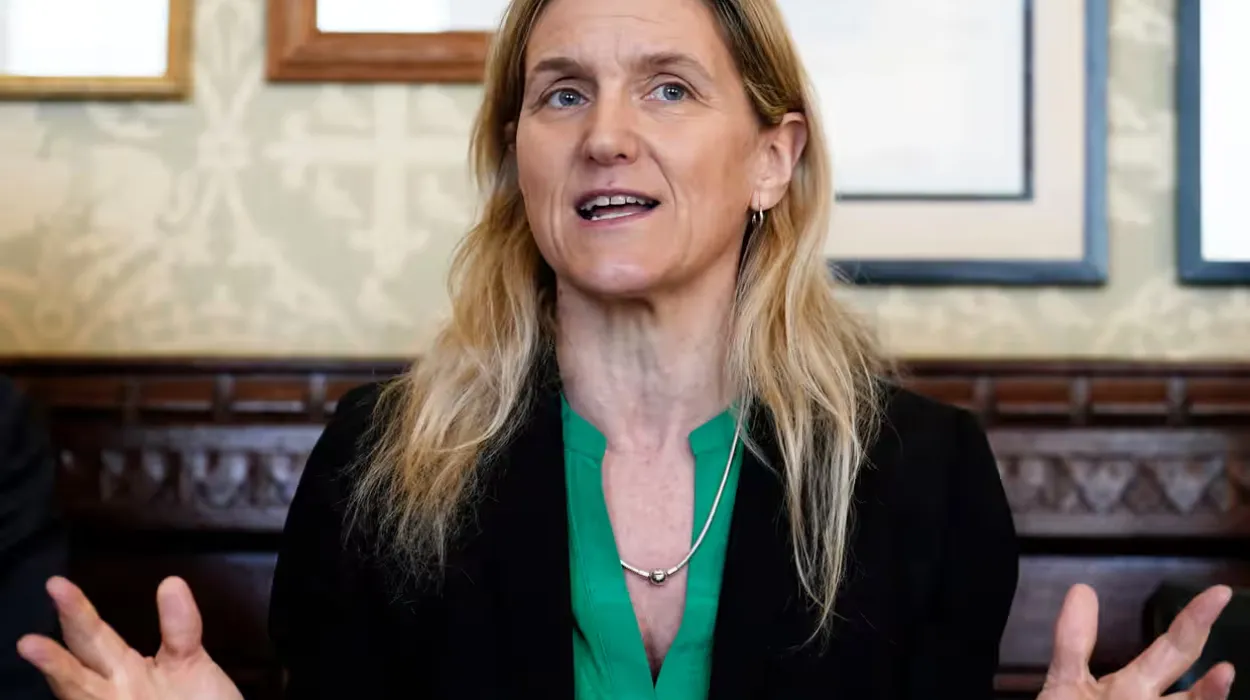UK (Parliament Politics Magazine) – Labour MP Kim Leadbeater dismisses claims of lost psychiatric support, insisting MPs and doctors still back her assisted dying bill ahead of a key vote.
As reported by The Guardian, Kim Leadbeater dismissed criticism from the Royal College of Psychiatrists, asserting MPs still strongly support the assisted dying bill.
What did Kim Leadbeater say about the Royal College of Psychiatrists’ stance on the assisted dying bill?
The Labour MP dismissed suggestions that the Royal College of Psychiatrists had withdrawn its support, stressing there were enough professionals in favour to ensure “it wouldn’t be an issue to get psychiatrists to engage” in the process.
According to her, it was “not accurate” to claim the college had withdrawn its backing, adding that the most recent survey revealed 45% of members backed a legal change while 45% opposed it.
She said this showed, “it wouldn’t be an issue to get psychiatrists to engage” in the panels authorizing assisted dying.
Ms Leadbeater said,
“Anybody with a mental health condition is excluded from eligibility within the bill, we’re talking about people who have a six-month terminal diagnosis only. And if there’s any doubts about mental capacity either one of the doctors involved in the process now has to make a compulsory referral to a psychiatrist.”
She stated,
“If you look at the process there are very strict safeguards around mental health conditions and around having that professional expertise and input.”
Labour MP denied that the bill was experiencing a notable decline in support ahead of Friday’s parliamentary vote. When asked about reports of MPs shifting to oppose the bill, she said she was “certainly not getting that impression” from discussions with peers.
She added,
“There might be some move in either direction but certainly not a huge amount of movement.”
What did Keir Starmer say about his stance on assisted dying?
UK Prime Minister Keir Starmer affirmed his ongoing support for the assisted dying bill.
During a broadcast interview in Albania, the prime minister reaffirmed the government’s neutral position on the bill, adding,
“What I would say is that from my own experience in this field, I dealt with it when I was the chief prosecutor, is that I do understand there are different views, strongly held views on both sides that have to be respected.”
When asked about his present stance, Keir Starmer, who has long supported changing the law, said, “My views have been consistent throughout.”
What did the RCP cite as reasons for not backing Leadbeater’s bill?
The Royal College of Psychiatrists outlined nine reasons for opposing Leadbeater’s bill in its current form, citing resource shortages and unclear psychiatrist roles in assisted dying panels.
The college confirmed it remains neutral on the fundamental issue of assisted dying.
What concerns did RCP President Lade Smith raise about the assisted dying bill?
Lade Smith, the RCP president, stated it was
“integral to a psychiatrist’s role to consider how people’s unmet needs affect their desire to live.”
Mr Smith added,
“The bill, as proposed, does not honour this role, or require other clinicians involved in the process to consider whether someone’s decision to die might change with better support. We are urging MPs to look again at our concerns for this once-in-a-generation bill and prevent inadequate assisted dying/assisted suicide proposals from becoming law.”
What did Dr Annabel Price say about the Royal College’s stance on suicide prevention?
Dr Annabel Price, leading the Royal College of Psychiatrists’ work on the bill, said,
“The college has spent decades focused on preventing people from dying by suicide. A significant part of our engagement on this bill to date has been to point out that people with terminal physical illnesses are more likely to have depression.”
He stated,
“Terminal illness is a risk factor for suicide, and unmet needs can make a person’s life feel unbearable. But we know that if a person’s situation is improved or their symptoms treated, then their wish to end their life sooner often changes.”
Mr Price added,
“The bill does not specify whether assisted dying/assisted suicide is a treatment option – an ambiguity that has major implications in law.”
What did Dr Trudi Seneviratne say about concerns over the assisted dying bill?
Dr Trudi Seneviratne, registrar at the RCPysch, stated,
“There would be many, many factors in the bill as it stands that would need to be addressed.”
She said,
“The workforce simply isn’t there. There’s a huge increase in mental disorder across the board – we don’t have enough [psychiatrists].”
Ms Seneviratne added,
“When someone has a terminal illness they may well develop a depression, a mental disorder, and that may lead to feeling suicidal. But actually, if you treat the depression, that suicidality might lift.”
Key points of the assisted dying bill
- Allows terminally ill adults (18+) in England/Wales to request assistance to end their lives, with strict safeguards 12.
- Eligibility: Must have a prognosis of ≤6 months to live, mental capacity, and a “settled wish” free from coercion 23.
- Requires two independent doctors’ assessments (7-day gap) and a 14-day reflection period after approval 24.
Safeguards & changes
- Originally required High Court approval; now replaced by a 3-person panel (judge, psychiatrist, social worker) 25.
- New offences for coercion (14-year prison sentence) 23.
- Doctors must discuss palliative care options first 512.
Current status
- Passed 2nd reading in Nov 2024 (330–275 vote) 49.
- Report stage debate scheduled for 16 May 2025; final vote pending 512.
- Implementation delayed to 4 years (from 2) for system setup.

